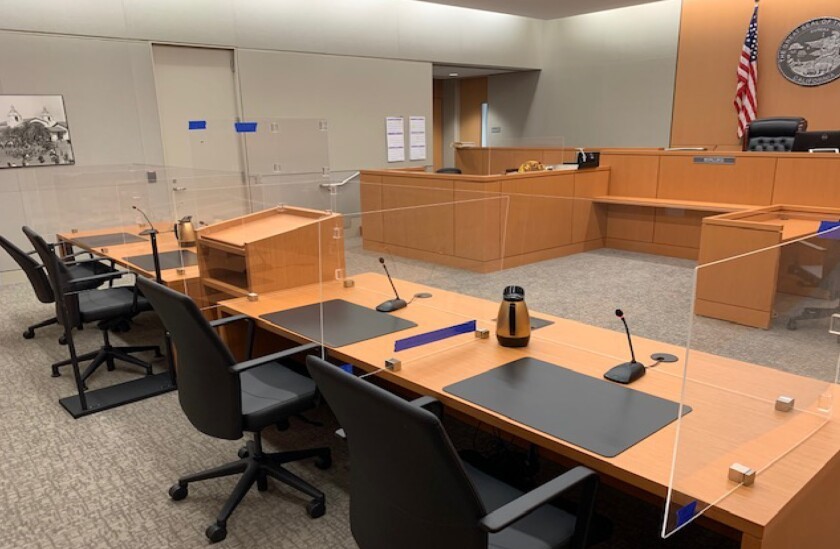
by Matthew J. Faust || 09 February 2024 ||
In Fall 2023, Sharif | Faust was excited to launch its new Probate / Trusts & Estates practice area! As our work in this exciting new area has progressed, we’ve had several people ask important questions, such as: What is the difference between Probate and Trusts & Estates? What are the drawbacks of probate? Do I even need a trust? These are all excellent questions, and I hope we can answer some of these questions here in this blog post.
Probate vs. Trusts vs. Estates
This is a critical question to understand. Speaking generally, “probate” refers to court proceedings that affect the transfer of a person’s property after they pass (the person who died is commonly called the “decedent”). The decedent’s “estate” is the property that needs to be transferred and can include many different property types. A “trust” is a legal document used to minimize the time and expense commonly associated with probate proceedings.
Probate
In general terms, probate courts exist to transfer the title of property from the recently deceased to their heirs. Of course, the probate courts can do many other things as well, but this is one of the core functions that lawyers associate with probate courts.
Typically, probate courts are state courts. One of the common tools people have historically utilized to accomplish their instructions after death is a will. It can be viewed as a set of instructions for the probate court and is one of our oldest forms of estate planning. But, as I will explain below, sometimes probate can be time-consuming or expensive. There are a lot of rules and procedures to make sure that the interested parties are treated fairly. While these rules and safeguards are important, they might not all be needed to accomplish a fair result in every case.
Probate Concerns
In a typical probate case, there are a lot of concerns that can come up. Primarily, the court needs to order the transfer of title of property in the estate to the surviving family. Sometimes, the property itself will be transferred; in others, the property will need to be sold so money can be distributed or used to pay debts.
How this happens depends upon a number of circumstances: Is there a will, and what does it say? What is the size of the estate? Was debt was owed by the decedent when they passed? How do we know who to give it to? This includes not just the surviving family members (who can be called heirs and/or beneficiaries) but also creditors.
Debts and taxes need to be paid.
Probate Proceedings
If the property at issue is not subject to a trust, then a probate proceeding needs to be opened so that a court can oversee the proceedings and ensure a fair application of law to all involved. There are a lot of concerns to worry about, and a judge will need to appoint the person who is tasked with making sure these decisions are made in the first place.
This person can have many names, such as executor, administrator, personal representative, and others. As you can see, a lot can happen here, and the judge needs good information to make these decisions.
This information is generated by tax preparers, accountants, real estate agents, attorneys, and other people. On top of this, the administrator and the lawyers are commonly compensated on a fee schedule (in California, this is set by Sacramento), so the more valuable the estate, the higher the compensation. Before the judge can make a ruling, notice of these proceedings is usually required for people who could be affected. If you add this all up, it can result in a potentially lengthy and expensive process. And, because this is all done in open court, the entire process is highly visible to the public. Oftentimes, people going through probate will wish there was an alternative. Thus, trusts are a tool that has developed to minimize, or even avoid, the expense of a probate court. In the best-case scenario, a trust can completely avoid court, but even in less-than-ideal circumstances, a trust can at least be used to lessen or minimize the time spent in court.
Keep an eye out for an upcoming post on probate proceedings.
Trusts

Trusts are a legal way to transfer property on a decedent’s passing that can reduce, minimize, or eliminate the time, money, and public visibility associated with probate court. How does this work? Well, it’s complicated. Stated in general terms, the trust is a tool in which a person (called the “trustor”) can set property under the protection of a fiduciary (the “trustee”) for the use of another (the “beneficiary”). The trust document is a set of instructions for how this is to happen and the timing and amount of any distributions to the beneficiary.
The instructions are a key part of setting up the trust because they are the main rules the trustee has to follow in making distributions. There’s a lot of flexibility in these rules that are typically governed by the laws of the state that the trust follows.
So why go through all of this? This foresight can help save your family time, money, and public visibility when they are managing your estate after you pass.
In general terms, the trust basically allows the trustor to transfer the property before their passing so that any property in the trust is transferred without the need of a probate court. This is all done with the goal of reducing the time, expense, and visibility of probate court for any property named in the trust.
But what if the decedent had acquired property after setting up their trust? This is why it is also important to periodically have your trust “refreshed.” Your trust lawyers can help make sure that after-acquired property is properly included in the trust.
But, even if not all property is included in the trust, it is likely that the property that is in the trust can avoid probate. If there is less property in the probate, the odds are that the fees associated with the probate will be lessened. In that case, the trust will have succeeded in reducing the time, cost, and public visibility associated with the probate.
Keep an eye out for an upcoming post on trusts.
Estates
So, what is the estate? The estate simply refers to the property that is being distributed on the decedent’s passing. This could include bank accounts, insurance proceeds, vehicles, and real property.
Any or all of this could be subject to probate or included in a trust. All of this can be accounted for in an estate plan, for which you would have numerous advisers assist you. At Sharif | Faust, we can assist with the legal needs. But, you might also have a financial adviser guiding your investments, a tax advisor helping minimize your tax bill, an insurance agent assisting with your life insurance, and other advisers as necessary. A successfully established and run estate plan will require each of these people to assist you. In this way, the trust is one of the more important legal documents you can set up to plan your estate, but it is by no means the only strategy you may desire to use. The lawyers at Sharif | Faust are ready to work with your advisers to ensure that your trust documentation matches your larger goals.
Finally, when Sharif | Faust is retained to assist you in preparing your trust, we commonly discuss several other important documents. These include a “pour over will,” advanced health care directive, power(s) of attorney, pre-nuptial agreements, post-nuptial agreements, and other important documents.
Keep an eye out for an upcoming post on estate planning and how to get ready for your first meeting.
More Questions?
In future posts, I’ll provide some more details on these, and other, areas of probate, trusts & estate planning. If you have questions beforehand though, please check out the rest of our blog for more information. The content of this blog is provided for informational purposes only, and we are not offering any legal opinions. If you wish to consult with Sharif | Faust, please contact us to set up a consultation. This blog does not create an attorney-client relationship with Sharif | Faust. To retain Sharif | Faust, you must sign a written attorney-client agreement. Remember, the results in any case depend upon the specific facts in that case. It is important that you consult with a lawyer you trust. By reading this blog, you agree to our Terms of Use.




